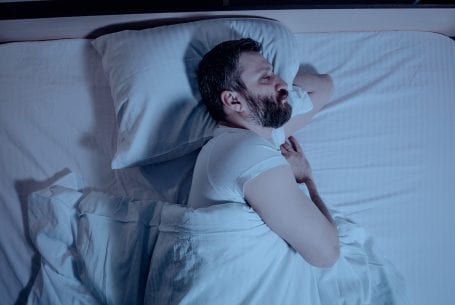Your overthinking and deep thought can make you restless for nights. Stressful thoughts can even ruin your slumber. Sleep is a good way to escape problems like fever, injury, or depression. It is linked to your health and influences your mental health as well. So, your stressful and depressing situation has to do a lot with your sleep. Sleep can ease depression; in point of fact, sleep is the time the body gets rid of toxins accumulated inside your body. It can work as an assisting power behind your depression healing process.

Table of Contents
How Sleep Helps Treat Depression?
Sleep and mental illness have strings attached. When you have disruptive sleep patterns, your chance of experiencing mental illness increases. Improving sleep hygiene is a crucial habit to maintain. Several sleepless nights drag you closer to depression. Medicines used to treat depression work if you get quality sleep every day. Even if it works without fixing your sleep, the solution will be a temporary one. As your sleep problem increases, your vulnerability to cognitive issues will increase. It may even make your depression worse, particularly if you’ve been diagnosed with schizophrenia. You’ll need to tackle both your sleep issues and your mental health disorder with Schizophrenia Treatment at Alta Loma and the following tips to ease your depression:
How To Improve Your Sleep?
Here are some habits to get a good night’s sleep and help treat your problem of depression.
Create A Comfortable Environment
Make your bedroom a space only for sleeping. Make it comfortable, turn off lights, keep away from the noise, etc. Use dark curtains to block any light coming from the window. If the area is too noisy, use a white noise method to avoid irritating noise. Make your bed comfortable and set it to a medium temperature.
Make A Bed Routine
Making a proper bedtime schedule is a crucial part of sleep hygiene. You should make a specific bedtime for your night sleep and then wake up in the morning at a fixed time. This will set your body’s sleep-wake cycle and create a body clock in no time. When it becomes a habit, you will feel well-rested every day.
Do Exercise Before Sleeping
Exercising here doesn’t mean any physical activities but building up a healthy habit to exercise, meditate, and read before sleeping. Your bedtime activities are also responsible for your sleep. Replace these habits with good ones like reading, meditating, and keeping electronic gadgets away.
Maintain Good Habits
Step outside in the sun to enhance your mood and grab your dose of Vitamin D. Setting up good habits and sticking by them always helps.
- Avoid drinking too much alcohol or caffeine. As advised by the Health Canal site, caffeine in large doses should be avoided.
- Quit smoking. It is injurious for both physical and mental health.
- Exercise and meditate.
- Grab your meals at the same time every day.
- Maintain your sleep schedule even on weekends.
- Keep television away from your bedroom.
- Avoid mobile phones and laptops during bedtime.
The Bottom Line
Sleep is strongly associated with mental health. Medicines for depression are useless until the patient doesn’t get enough sleep. Sleepless nights level up the issue of depression. To fix your sleep hygiene, you need to have a routine to help treat your depression and other mental health issues. The problem of depression can get worse with time when your sleep pattern is poor.






